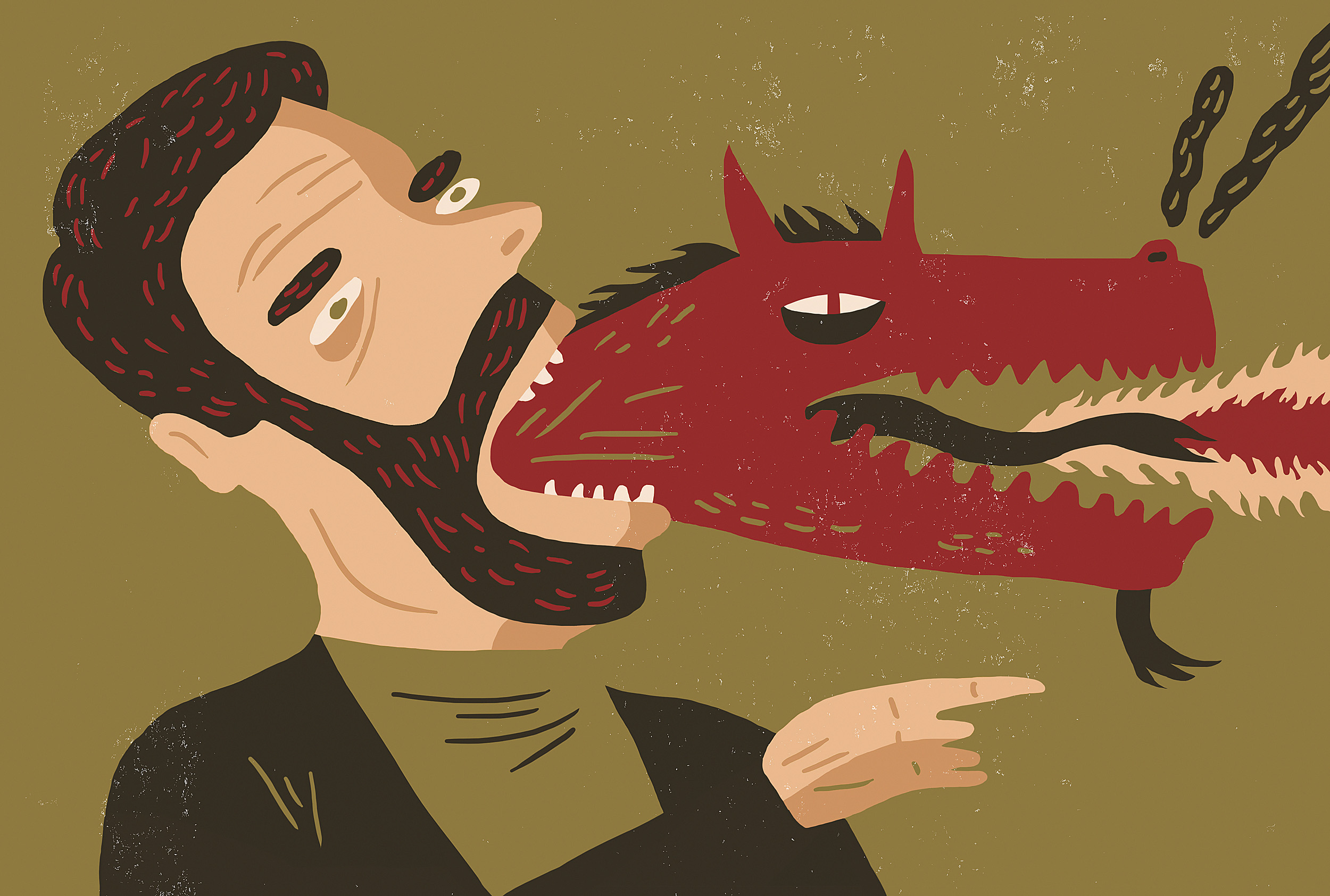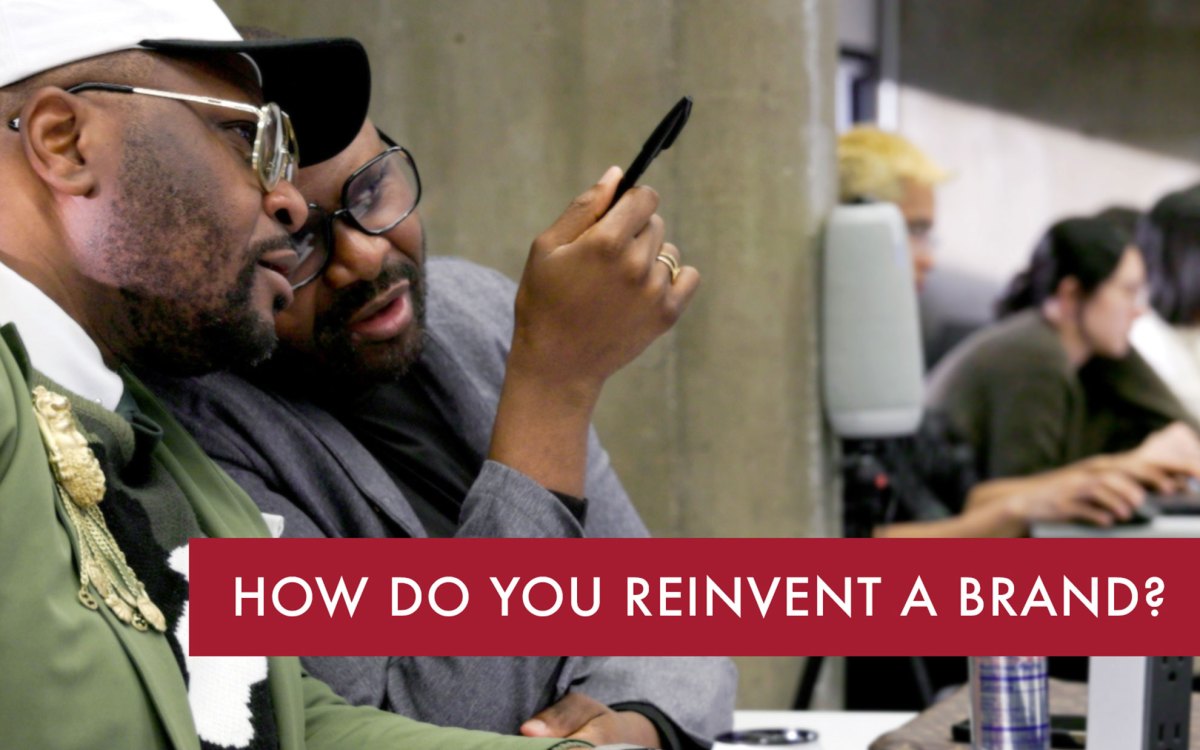
Customer rage has been an unwelcome feature of post-lockdown life.
Oivind Hovland/Ikon Images
Why all the abuse of servers, flight staffs, sales clerks as COVID rules ease?
Businesses need to communicate more with customers and empower workers, expert says
Just months ago, many people were longing to go out to dinner and travel once again or worrying whether a favorite café or local shopkeeper would be able to survive an entire year of COVID business restrictions.
Now, news stories about angry customers behaving badly over minor inconveniences — diners berating wait staff over slow service or menu shortages, shoppers upset over hard-to-find items, and airline passengers refusing to comply with flight attendant directives about safety protocols — have become a near-daily occurrence. The Federal Aviation Administration has more than 3,400 unruly passenger reports on file so far for 2021, sparking 555 investigations; by comparison, just 146 investigations were initiated in all of 2019. And a recent poll of food service workers found 39 percent were quitting over concerns about hostility or harassment from customers, and 80 percent had either witnessed or experienced such behavior over COVID safety protocols.
Besides the extra hardship for workers, these incidents further add to the challenge facing many service industry businesses struggling to return quickly to pre-pandemic capacity and finding it difficult to recruit and retain staff.
Harvard Business School Professor Ryan W. Buell, who studies the dynamics of business-customer relationships, spoke with the Gazette about why more and more customers suddenly seem to be lashing out and what businesses can do to support their workers.
Q&A
Ryan Buell
GAZETTE: Upset customers are not new to those working in the service industry. But the rash of customers shouting at staff, flouting safety policies or local ordinances, even threatening or becoming violent over trivial matters is decidedly new. What do you think is going on?
BUELL: I think there are a few things that are going on. One is we have been pent up in our houses, and we’ve been building expectations about what it will be like when we’re finally out. But the reality is that, from an operational perspective and a public health perspective, we’re not totally out. Things have become safer in some ways, but we still have [COVID] variants. And the problem is also unevenly felt around the world, which is leading to different kinds of constraints.
One is, there are labor constraints that a lot of these service businesses are facing. It’s difficult to motivate talent to apply and bring them in. And then to retain them is harder, too. Lots of service organizations are facing turnover rates that are higher now than they were pre-pandemic.
Another is just supply-chain challenges. It’s hard to make sandwiches if you don’t have all the ingredients. And they may not have all the ingredients because supply chains aren’t up and running at their peak capacity. It takes a while to spin these things up. So you’ve got customers who have been looking forward to being back out in the world and so their expectations are high, but [the] capacity to deliver on those expectations isn’t quite where it needs to be.
Another challenge is different organizations have different policies. Do you need to wear a mask? Do you not need to wear a mask? Customers don’t always know what the terms are when they engage with a company. And what that does, it means that when you walk into the door and you thought one thing and the reality is something different, it creates a lot of awkwardness and can lead to a blow-up. Beyond that, masks and the way we engage with the pandemic has become political, and so people are sometimes using their service encounters as a political platform to show what they think should be the state of the world. Even if you’re well-intending, but now you’re in a room where you’re clearly not engaging the way that everybody else is, that can make people feel deeply uncomfortable. I think we see blow-ups coming from that as well.
“There’s real trepidation to actually share those kinds of warts and blemishes with customers. But failure to do so means that people are coming in with a set of expectations that businesses can’t meet.”
GAZETTE: While businesses are understandably eager to finally get more customers in the door, some have had major hiccups since reopening. Are some expecting customers to be more flexible or understanding than they ought to be? And what can they do proactively to minimize the likelihood that pandemic-related problems, the delays and shortages, will be felt by their customers?
BUELL: Some of my research is on something called operational transparency — what happens when people can see the hidden work that’s going on behind the scenes to serve them. And what we know is that even in the best of times, people tend to underestimate the effort and expertise and work and care and thoroughness and coordination that goes into serving them. Now, in more challenging times, the gap can be even bigger. And so, anything they can do to provide customers a window into what’s going on behind the scenes to serve them can help realign their expectations with the gravity of the situation they’re encountering. We also know that it can help them appreciate and value service more. So a huge prescription here — half of it is transparency. If they’ve got rules and policies, customers need to know that before they walk into the store. They need to know that that’s not the discretion of an individual employee, that it’s the rules of the road for the whole organization. Everyone has to follow it; our employees do and every single customer. Companies, in the name of hospitality, don’t want to jam that message down customers’ throats, but it’s critical if they want to set people up to really thrive in the interaction.
Beyond policies, if there are constraints that they’re dealing with on the labor side or on the supply side, they need people to understand that they’re not holding back on customers. They’re not making them wait intentionally, they’re doing the best they can. And the earlier they can convey and communicate that information, the better off they are.
There’s real trepidation to actually share those kinds of warts and blemishes with customers. But failure to do so means that people are coming in with a set of expectations that businesses can’t meet.
The other side of this is what businesses do for their employees. These days, these are, in many cases, new employees. At best, they’ve been retained through the pandemic and they understand, but their training needs to be updated. At worst, they’re brand-new and don’t know and are still coming up to speed. Whatever transparency they need to provide the customers about policies and constraints, they need to doubly communicate that to employees so that everybody understands and everyone’s on the same page.
Harvard Business School Professor Ryan Buell.
Photo by Stu Rosner

GAZETTE: What can business owners and managers do to support and protect their staff members from mistreatment without turning away business, as some have, or alienating the desirable, cooperative customers?
BUELL: What successful leaders are doing now more than they’ve ever done is they’re checking in a lot more with their teams and making sure they have what they need, making sure that they’re OK, and making sure that they feel appreciated for the work that they’re doing. More fundamentally, though, there are three things they need to make sure that individuals have if they want to stave off burnout, if they want to set them up to be successful. The first is they need capability: They need the knowledge, skills, abilities, information, resources, processes to get the job done. Really focus on trying to make their systems robust to help people come up to speed as quickly as possible, know what the resource constraints are, and understand what they can do to address or remediate those resource constraints.
The second thing people absolutely need is motivation. They need to feel like the work they’re doing matters. They need to feel like it’s important, and they need to feel like it’s making a positive difference. Which means that businesses need to really celebrate the successes. Think about the way that we thought about grocery store employees in the early days of the pandemic: These were heroes who were putting their lives on the line to make our lives possible, to give us the food we needed to survive. That’s gone away, that has evaporated. And if anything, it’s flopped in the other direction. And so, we have to find ways to help people understand the value they’re creating, and really celebrate it so that they’re built up, so in those moments when the [emotional] reservoir gets drawn down, it’s getting drawn down on a deeper reservoir.
They want to separate people from the problem as much as possible. Have quick and easy ways to be able to pivot in a manager who presumably has more discretion, so the moment something goes wrong, the frontline [employees have] a ripcord to be able to get away from that situation.
The third thing that’s really important is they need to give them a little bit of discretion so that in those moments when something bad has happened, they have the tools to address that challenge and gap. Here’s the thing: If they have an upset customer and can turn it around for them, and by the end, they’re thanking you, that is a triumph. That is going to make people feel successful and empowered. And so, if you have capability, you have motivation, and you’ve got this discretion, that’s a really powerful triad of things that can help not just stave off burnout, but really help employees thrive in these moments of constraint.
Interview has been edited for clarity and length.




